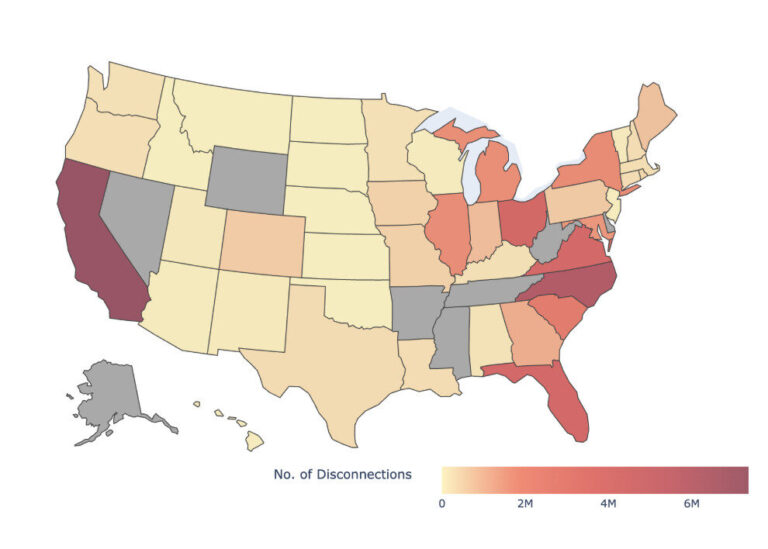FirstEnergy floats $13.6 million refund in Pennsylvania in response to Ohio criminal investigation and audits of influence spending charged to customers

FirstEnergy is proposing to refund $13.6 million to Pennsylvania customers who the company mischarged for payments related to the utility’s bribery schemes in Ohio, as well as advertising, lobbying, sports sponsorships and other expenses that are supposed to be excluded from the rates of publicly regulated utilities.
The utility is proposing the refund as part of a newly filed rate case in which FirstEnergy is also seeking to increase the rates paid by its Pennsylvania customers by $502 million, or nearly thirty-seven times the proposed refund. Most residential ratepayers would receive a one-time monthly bill credit for $4 to $6 in January of next year from the refund, while their monthly bills would rise by more than $16 to $21 if FirstEnergy gets its way on the rate hike.
First, the Pennsylvania Public Utilities Commission (PUC) will have to review the rate request. Pennsylvania law requires that the PUC ensure the lowest rates for customers while allowing utilities to recover reasonably incurred expenses and a fair return on investment. Customers can participate in the rate case by filing a complaint, providing comments, or speaking at a public hearing.
FirstEnergy’s assistant comptroller Tracy Ashton and Director of Rates and Regulatory Affairs for Pennsylvania Joanne Savage described in testimony that accompanied the rate request how the proposed $13.6 million refund is the result of a string of criminal investigations and regulatory audits spurred by the utility company’s bribery schemes in Ohio.
“First, following the investigation of Ohio HB 6 activities, FirstEnergy’s Board of Directors discovered and reported that certain costs may have lacked proper documentation or may have been improperly classified or misallocated to FirstEnergy’s distribution utilities, including to FE PA,” Ashton said.
House Bill 6 is the Ohio law at the center of multiple state and federal criminal cases. Enacted in 2019, HB 6 provided FirstEnergy and a bankrupt subsidiary with over a billion dollars in since repealed ratepayer bailouts. FirstEnergy has admitted it paid over $64 million in bribes to convicted former Ohio House Speaker Larry Householder and indicted ex-Public Utilities Commission of Ohio Chairman Samuel Randazzo to secure the bailouts, as well other regulatory favors from Randazzo.
At least part of the $13.6 million refund proposed by FirstEnergy stems from “approximately $2.4 million in inappropriate costs” related to the HB 6 schemes flagged earlier by a 2022 audit by the Pennsylvania PUC.
As previously reported by the Energy and Policy Institute, those “inappropriate costs” included money paid to Randazzo’s consulting firm and multiple entities associated with Tony George, a Cleveland area businessman who acted as an intermediary between FirstEnergy and Householder, but has not been charged with any crime. FirstEnergy flagged the initial $2.4 million in refunds owed to Pennsylvania customers in a 2021 presentation to the PUC that EPI obtained via a public records request.
Ashton and Savage explained how a Federal Energy Regulatory Commission audit then led FirstEnergy to identify millions more in mischarges to Pennsylvania customers. FirstEnergy brought in an outside auditing firm, Craig Energy & Financial Services, which identified still more mischarges. As a result, the refunds owed by FirstEnergy ballooned from $2.4 million to $13.6 million.
Savage broke down the mischarges, which FirstEnergy began to include in Pennsylvania rates during earlier rate cases in 2006, 2014, and 2016:
She then detailed how the mischarges have continued to pile up in rates since 2007 and continue to be paid by customers in 2024, adding up to the $13.6 million total refund proposed by FirstEnergy when interest is applied:
The “Sustainability Funding Alliance” listed in one of Savage’s exhibits is Randazzo’s consulting firm, to which FirstEnergy secretly paid the $4.3 million shortly before Randazzo’s appointment as PUCO chairman in early 2019 that prosecutors have cited in the bribery charges against Randazzo.
The “Vendor Payments – 16 Entities” mentioned by Savage were first flagged by the FERC audit as part of $28.8 million in payments related to the federal criminal investigation in Ohio to “entities associated with an individual identified by FirstEnergy.” Cleveland.com previously reported that the individual is believed to be George, though George denied that he personally received $28 million from anyone. FirstEnergy said it was unable to comment when previously asked by EPI.
FirstEnergy admitted in its 2021 presentation to the PUC that it used money from Pennsylvania customers to cover the cost of some payments to George’s Ohio Outdoor Advertising:
Evidence later presented by prosecutors during Householder’s trial revealed that the same George firm received $150,000 from Ohioans for Energy Security, a murky for-profit entity that FirstEnergy secretly paid $23 million for a xenophobic campaign to defeat a 2019 ballot petition that aimed to repeal HB 6.
“Internal lobbying” costs that FirstEnergy customers were forced to pay for could have included money paid to now terminated former FirstEnergy lobbyists who lobbied on HB 6, including FirstEnergy’s indicted former Vice President of External Affairs Michael Dowling.
FirstEnergy owes related refunds to customers in Maryland, New Jersey, Ohio and West Virginia.
State lawmakers in Maryland, Ohio, and Pennsylvania have introduced legislation aimed at preventing publicly regulated utilities from forcing customers to pay for corporate lobbying and political spending. Similar legislation has also been introduced in at least seven other states this year, and passed in Colorado, Connecticut and Maine in 2023.
Top image attributed to Jericho from Wikipedia Commons. Creative CommonsAttribution 3.0 Unported license.



